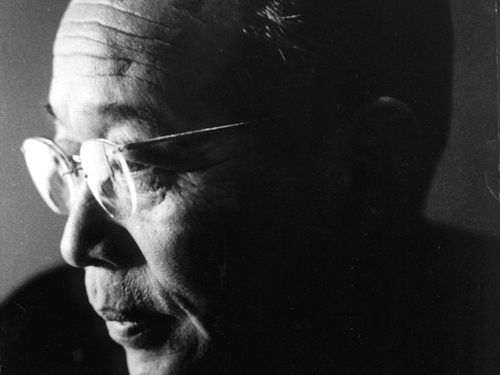
Tsuneo Hazumi, Jacques Rivette, Hajime Tanizawa, Philippe Demonsablon, 1952, 1958, 1959, 1961
Als muziek een universele taal is, is de mise-en-scène dat ook: het is deze taal, en niet het Japans, die men moet leren om ‘Mizoguchi’ te begrijpen. Een gemeenschappelijke taal, maar tot een niveau van puurheid gebracht die onze westerse cinema slechts bij wijze van uitzondering heeft gekend.